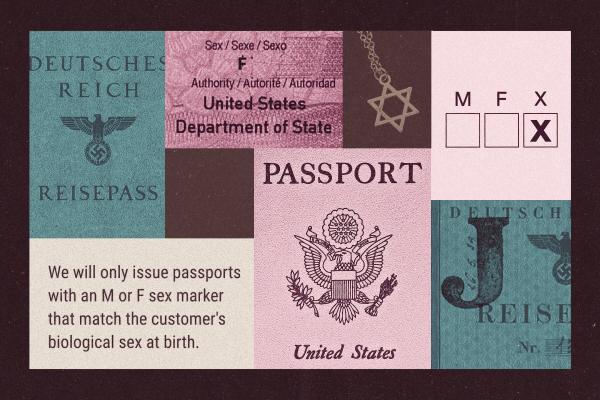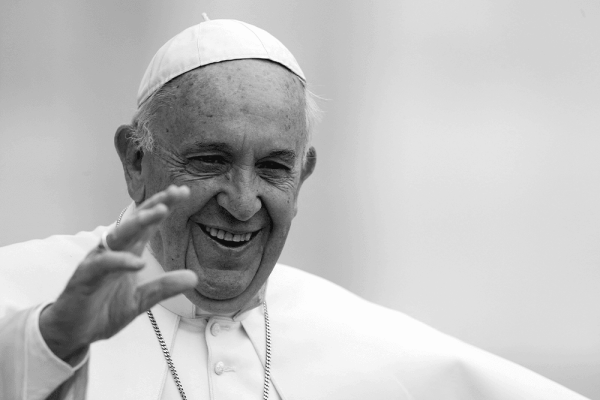For the past five years, Sojourners has celebrated Women’s History Month with a roundup of women faith leaders who are bringing us hope and inspiring us to action. This year’s group includes pastors and seed-keepers, authors and theologians, activists and organizers. Collectively, they envision and work toward a wide and bold church community — a community that cares for creation and for those who are suffering, that centers those who the church has historically marginalized, and that holds both political and faith leaders accountable. Pray alongside these leaders and learn their vision for growing justice this year.
1. Kat Armas
shutterstock_image_40.png
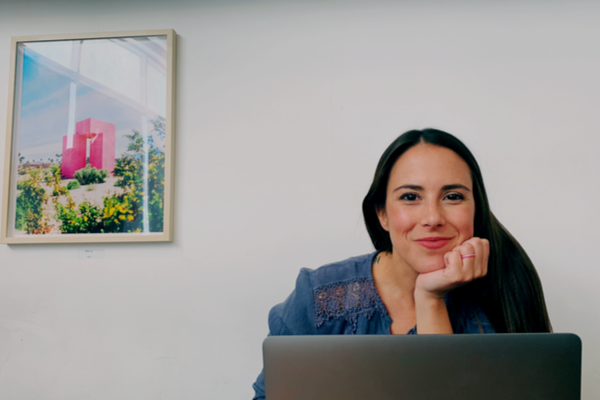
Kat Armas is a Cuban American author and podcaster who holds two master’s degrees from Fuller Theological Seminary. Her forthcoming book, Abuelita Faith: What Women on the Margins Teach Us About Wisdom, Persistence and Strength (Brazos Press) tells the stories of unnamed or overlooked women in the Bible and society. Kat also hosts The Protagonistas , a podcast that centers the voices of women of color, Black women, and Indigenous women in church leadership and theology. Follow her on Twitter at @kat_armas.
Why are women’s voices so important right now?
Women carry medicina (medicine) in their bodies — their hands and their hearts. Our collective voices and the divine, sacred wisdom that we hold from the women who came before us, are necessary to heal a world plagued by injustice, pain, and death.
A prayer for this year:
God of liberation, we ask for the wisdom of our foremothers: the persistence of Rizpah, the boldness of the Canaanite mamá, the courage of Deborah, the shrewdness of Tamar, the compassionate heart of Tabitha. We ask that the strength of our ancestors guide us, so that we, too, may be healers and co-creators and life-giving agents of your kin-dom.
2. Edith Woodley
edith_woodley.png
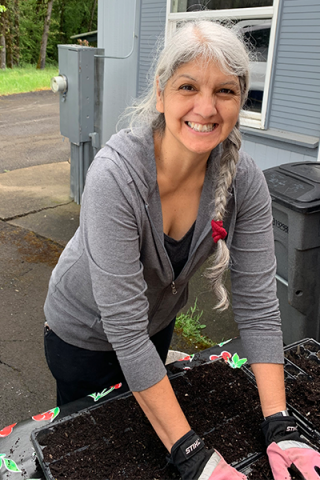
Edith Woodley is a mentor and teacher on issues concerning Indigenous spirituality and creation. Raised on the Wind River Reservation and an Eastern Shoshone tribal member, Edith is a mother, grandmother, and farmer/seed-keeper with unique insights concerning our relationship with the land. She graduated from Bacone College and is co-sustainer with Randy Woodley at Eloheh Indigenous Center for Earth Justice and Eloheh Farm & Seeds. Follow her on Twitter at @elengavo.
Could you share your vision for growing justice in a specific area this year?
I want to decolonize and indigenize our foodways, starting with the seeds. At Eloheh — a learning center, farm, seed bank, and community — we understand seeds as our lifeline to the next generation. If we don’t attend the seeds properly, we cut ourselves off from the Earth and our future. Seeds are not an object; they are beautiful, unique, and life-giving. Each holds the DNA and history of a people’s relationship with them and the food or medicine they represent.
A prayer for this year:
I hope that people will come to know the need for carrying out the love for the seeds and what they represent for our future. This is critical now, during a pandemic and the uneasiness we are experiencing from the earth, caused by our foolishness. Modern society has treated the Earth badly, including the seeds. Help us, Great Spirit, as we look to the seeds of the plant people, human people, and all the rest of the natural world to sustain our future.
3. Dr. Barbara Williams-Skinner
barbara_williams_skinner.png
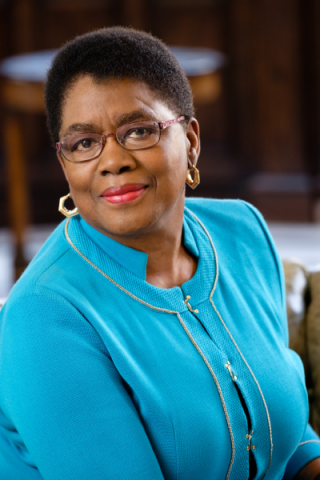
Dr. Barbara Williams-Skinner is president and CEO of Skinner Leadership Institute, former director of the Congressional Black Caucus, and an advocate on issues impacting vulnerable citizens, including criminal justice reform. She co-founded the Masters Series for Distinguished Leaders, the Masters Series for Distinguished Clergy, and is the author of I Prayed, Now What? Follow her on Twitter at @williamsskinner.
Could you share your vision for growing justice in a specific area this year?
My vision is to equip the Black church, working with allies and interfaith partners, to address systemic racism in all areas that assault the image of God in vulnerable citizens, whether in criminal justice reform, civic empowerment, health disparities impacted by COVID-19, or equity in the distribution of life-saving vaccines.
Why are women’s voices so important right now, especially as we enter year two of the pandemic?
The COVID-19 virus, a once-in-a-century pandemic, has exposed historic gender inequities, making women’s voices more important than ever. Women, especially women of color and low-income white women, are among the majority of essential workers at greater risk to the virus. Past advancements made by women in upper levels of the job market have rapidly decreased as virtual education and lack of childcare have added additional burdens on women workers.
4. Erna Kim Hackett
shutterstock_image_41.png
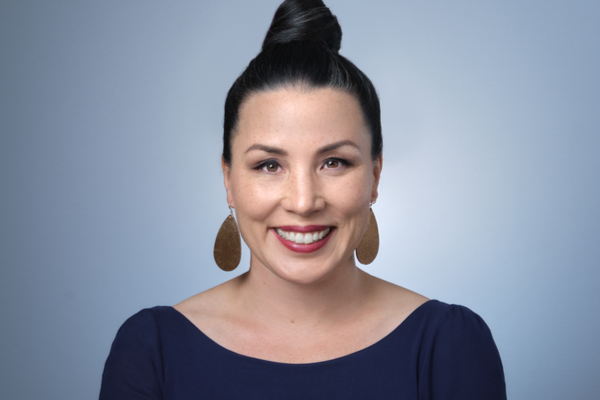
Erna Kim Hackett is a preacher, public theologian, coach, and founder of Liberated Together, a space for Black women, Indigenous women, and women of color to pursue justice in decolonized ways, build radical solidarities, and dream of new types of worshipping communities. Follow her on Instagram @ernakimhackett.
Could you share your vision for growing justice in a specific area this year?
It is clear that the evangelical establishment is and has been a place of trauma for women of color and queer women of color, and even progressive spaces fall back on patriarchy and white-centered practices. Women of color find themselves constantly being extracted from, even in justice work. We seek to create spaces where these women can heal from trauma, unlearn internalized white supremacy and patriarchy, and pursue holistic collective pathways to liberation.
A prayer for this year:
Creator, show us a new way forward. Free us from nostalgia and loyalty to what has been done, the way things were, the familiar. Fill us with courage and desire to imagine and create communities that honor the full humanity of us all.
5. Jocabed Reina Solano Miselis
shutterstock_image_42.png
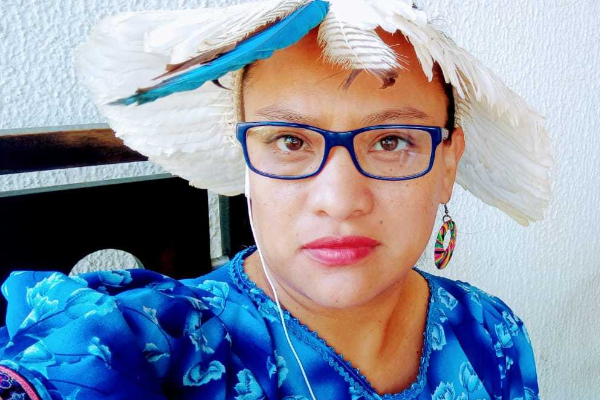
Jocabed Reina Solano Miselis es panameña de la nación Gunadule. Ella nació en la comarca de Gunayala en la temporada del Bardud, cuando los médicos gunadules buscan las plantas medicinales para la salud del pueblo. Tiene una maestría en Teología Interdisciplinaria para la Misión Integral otorgada por CETI en alianza con la Universidad de Carey en Canadá. Es directora de la ONG Memoria Indígena y forma parte del comité directivo de la FTL (Fraternidad Teológica Latinoamericana). Sigue su página en Instagram @memoriaindigena.
Jocabed Reina Solano Miselis is a Panamanian woman from the Gunadule nation. She was born in the region of Gunayala in Bardud season, when Gunadule doctors search for medicinal plants for the health of the people. She holds a master's degree in Interdisciplinary Theology for Integral Mission granted by Comunidad de Estudios Teológicos Interdisciplinarios (CETI) in partnership with Carey University in Canada. She is the director of the nonprofit organization Memoria Indígena and is part of the steering committee of the Latin American Theological Fraternity. Follow her on Instagram at @memoriaindigena. Translated by Paola Fuentes Gleghorn.
¿Por qué son tan importantes las voces de las mujeres hoy en día, especialmente cuando entramos al año dos de la pandemia? / Why are women’s voices so important right now, especially as we enter year two of the pandemic?
Por miles de años las mujeres indígenas han estado luchando, incidiendo a favor de la vida y la justicia. Junto a la Tierra, las voces de las mujeres indígenas no pueden ser silenciadas, porque se reconocen como parte de la Madre Tierra. Las mujeres indígenas son una de las poblaciones más vulnerables por el sistema capitalista en la cual estamos inmersos y el COVID-19 solo evidencia está vulnerabilidad. Pero las mujeres indígenas siguen siendo unas de las que más contribuyen en la preservación de los bosques, ríos, de los animales, de los ecosistemas, pero también en la preservación de la identidad y las memorias de los pueblos indígenas quienes tienen unas sabidurías únicas que enriquecen a la humanidad.
For thousands of years Indigenous women have been fighting and advocating for life and justice. Just like the Earth, Indigenous women cannot be silenced because we know we are part of Mother Earth. Indigenous women are one of the most vulnerable populations under capitalism. COVID-19 has further exposed that vulnerability. Indigenous women continue to be one of the groups contributing the most to the preservation of forests, rivers, animals, ecosystems, as well as the preservation of identity and the memories of Indigenous peoples that provide unique wisdom to enrich humanity.
Una oración para este año: / A prayer for this year:
Te pedimos por las mujeres indígenas, porque son las defensoras de la Tierra y las portadoras de conocimientos que nos pueden guiar a un mejor relacionamiento con ella. Rogamos que las guardes y les de fuerzas y sabiduría en la lucha por la vida, la dignidad y resistencia frente a los poderes de la muerte. Oramos que no están solas, que las comunidades de fe cristianas se unan a ellas, las acompañen y caminen con ellas. Que tengamos oídos y ojos para verlas, oírlas y sabiduría para discernir tu mover Ruah en ellas.
We pray for Indigenous women, because they are the defenders of the Earth and the keepers of knowledge that can guide us to a better relationship with Mother Earth. We pray that you will keep them and give them strength and wisdom in the struggle for life, dignity, and resistance to the powers of death. We pray that they are not alone, that Christian faith communities will join them, accompany them, and walk with them. May we have ears and eyes to see them, hear them, and wisdom to discern the movement of your ruah (breath) in them.
6. Rev. Liz Edman
shutterstock_image_43.png
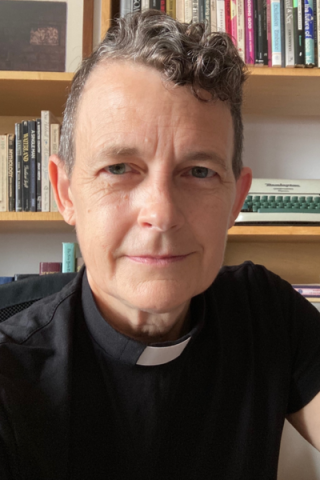
Liz Edman is an Episcopal priest, political strategist, and the author of Queer Virtue: What LGBTQ People Know About Life and Love and How It Can Revitalize Christianity (Beacon Press, 2016). She co-created Glitter+Ash Wednesday, one of her many ventures to express and embody the essential, irrepressible queerness lurking within Christian tradition. Follow her on Twitter at @liz_edman.
Could you share your vision for growing justice in a specific area this year?
There is a growing movement among progressive Christians to name our faith as “queer.” Queer faith calls us to disrupt violently oppressive binaries; upend coercive power structures; and step courageously onto ground that, while less familiar, is more just. I am hopeful that this shift will lend greater vitality and conviction to left-leaning faith, empowering more Christians, especially white Christians, to become better partners in the fight for racial justice.
A prayer for this year:
Holy One, whose queerness and beauty cause human breath to catch: Be with us now.
You have placed this path at our feet. Help us to travel it well.
You give us sustenance for the journey. Help us to know when to rest, and when to step up so others can rest.
You have lit a fire of hope in our hearts. Thank you. Help us to kindle it, always. Amen.
7. Rev. Dr. Elizabeth Conde-Frazier
shutterstock_image_45.png

Rev. Dr. Elizabeth Conde-Frazier is a practical theologian who has used her gifts as a church educator, theology professor, and academic dean. Currently she is the coordinator of relations for theological entities at the Association of Hispanic Theological Education. She’s written on immigration, Latina evangélica theology, and participatory action, among other topics. She writes from her places as Latina educator, mother, grandmother, wife, and minister.
Could you share your vision for growing justice in a specific area this year?
Growing justice in the area of poverty involves getting information out to people about how poverty is structured intentionally by those with power which, at times, includes our theologies. Our strategies for community organizing and advocacy and for the continued work of caring for one another right now must work together. We must be relentless in our resistance and finding ways for persons to live with dignity. We must work together from many different sides.
Why are women’s voices so important right now, especially as we enter year two of the pandemic?
Women’s voices have always brought perspective, wisdom, compassion, and passion that makes us like the water that erodes the rocks in its way. Water does not destroy in order to create change; it erodes, making new use of the matter. It’s also important to open up spaces and listen to women’s voices because when women speak, they come into their own power. There are many young women whose voices are the release of the power of resurrection in our midst.
8. Ryane B. Nickens
shutterstock_image_44.png
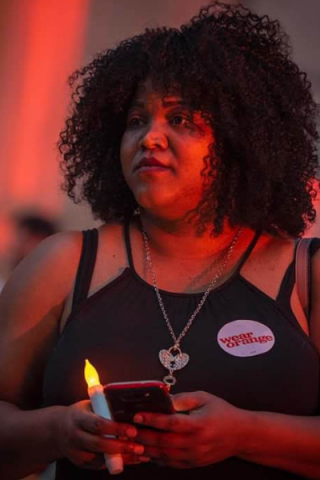
Ryane B. Nickens was born and raised in Ward 8 of Washington, D.C. Her personal experiences led her to found The TraRon Center to ensure those affected by gun violence have the resources to deal with their trauma in holistic ways. Ryane is a member of Metropolitan AME Church in D.C.. Follow her on Twitter at @babeforchrist.
Could you share your vision for growing justice in a specific area this year?
Gun violence continues to disproportionately impact Black and Hispanic communities, which have historically been underserved. To combat gun violence effectively in communities of color, we must take a holistic approach and address it through a public health lens. It is not enough to declare gun violence a public health issue, it must come with full funding for behavioral health, combatting inequality in education, and addressing the root causes of poverty.
Why are women’s voices so important right now, especially as we enter year two of the pandemic?
The voices of women, especially women of color, are paramount at this moment. Many were taken aback by the systemic and structural injustices the pandemic exposed in our health care, employment, and education systems, and other areas. These issues were not new to women of color, who have been yelling about them for decades. It is important in this moment to finally bring their knowledge, experience, and voices to the forefront.
9. Rev. Sèkinah Hamlin
shutterstock_image_48.png
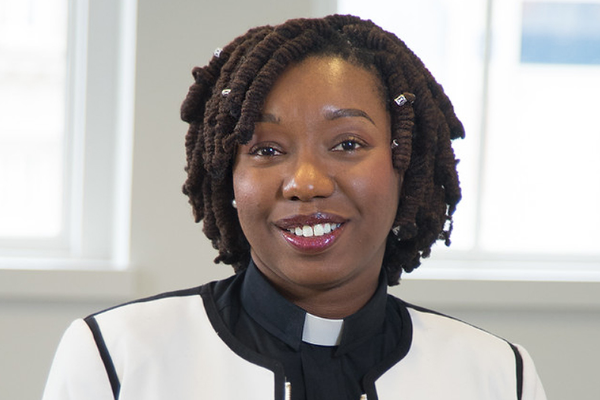
Rev. Sèkinah Hamlin is a mother, caregiver, pastor, and the minister for economic justice for the United Church of Christ. Her ministry helps to re-create this world into one that is just for all — a world rooted in biblical principles of jubilee and the life of Jesus Christ. Follow her on Twitter at @SekinahHamlin.
Could you share your vision for growing justice in a specific area this year?
We’re inviting the spirit’s breath to transform our economy’s “valley of dry bones” by fighting against the wealth gap caused by unjust wages and debt, including student loans, medical expenses, and costs related to the criminal justice system. We also recognize that economic justice requires repair of the breaches caused by white supremacy, colonialism, and enslavement. We support HR 40, a bill that would create a commission to find out what the continuing harms from slavery are and make proposals to Congress on how to repair that damage, including reparations for African Americans. We also support the global reparatory justice movement’s Zacchaeus Tax, the goal of which is to convince governments around the world to give reparations to communities harmed by colonization and slavery.
A prayer for this year:
Loving, liberating God, grant us eyes to see past destruction and courage to repair the breaches in our societies. Help us center not just the stories but also the leadership of marginalized communities and people. Empower us to join hands, hearts, and heads with other visionaries despite theological and political categories. May the sword of your Spirit conquer all wickedness in high places and your light of hope shine bright.
10. Rev. Vahisha Hasan
shutterstock_image_46.png
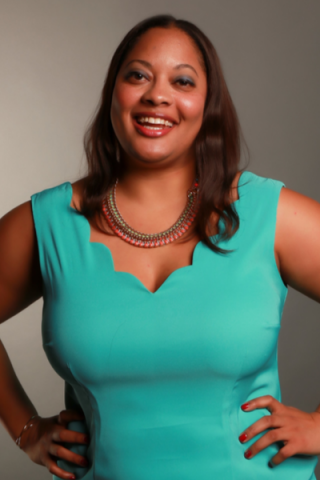
As executive director of Movement in Faith, Rev. Vahisha Hasan is deeply invested in ways activist and faith communities further healing and collective liberation. She is also the rapid response coordinator for TRACC4Movements, an organization that offers trauma response and crisis care to support activists, and director of social justice, equity, advocacy, and leadership at American Baptist College. She loves, then she rests, then she loves some more. Follow her on Twitter at @VHasanMIF.
Could you share your vision for growing justice in a specific area this year?
Expanding the scope of healing is my forefront area of justice this year: healing as we wrestle with principalities in supremacist places, healing as we care for a groaning Earth, and healing as we resist with great joy. This healing necessitates navigating trauma-centered disciplines by compassionate individuals — “heartbeats” — who love people. My vision is to resource these heartbeats to be who they are called to be in a world that is hurting and hopeful.
A prayer for this year:
God of Miriam, Rebekah, Zipporah, Mahalia, Zora, and Prathia;
God of Mary Hooks, Teresa Smallwood, and Gina Stewart:
Be with us, as with them.
Ruach for us, as we breathe together.
God of my own mother and those who mother, send us forth in your spirit and power as we call forth collective liberation.
We love you and cherish how fully you embrace us.
May we more fully love and embrace each other.
11. Ruth Padilla DeBorst
shutterstock_image_47.png
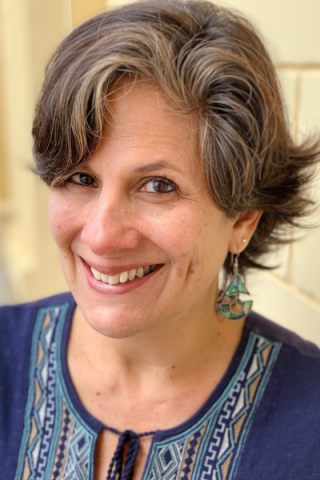
Ruth Padilla DeBorst has been involved in theological formation for integral mission in her native Latin America and beyond for several decades. She serves with Resonate Global Mission. Along with her husband, James, she lives in Costa Rica as a member of Casa Adobe, an intentional Christian community with deep concern for right living in relation to the whole of creation.
Why are women’s voices so important right now, especially as we enter year two of the pandemic?
In many parts of the world, women are closer to the land and its fruits, through labor and care, than men. Often, male dominance exerted over the environment is also evident in the treatment of women. If women’s voices are given as much credit as those of men, the shared work of care for creation can lead to responsible action and contribute to more sustainable forms of community living.
A prayer for this year:
Creator God, Community of Love, we yearn to see a healed planet, one in which there is space for all forms of life to thrive. Forgive our abuse and negligence. Renew our imagination about what is possible and give us the resolve and the courage to set aside our consumptive practices that are hurting your Earth and its inhabitants, and to worship you through our care of one another and of your beautiful creation.
Got something to say about what you're reading? We value your feedback!


